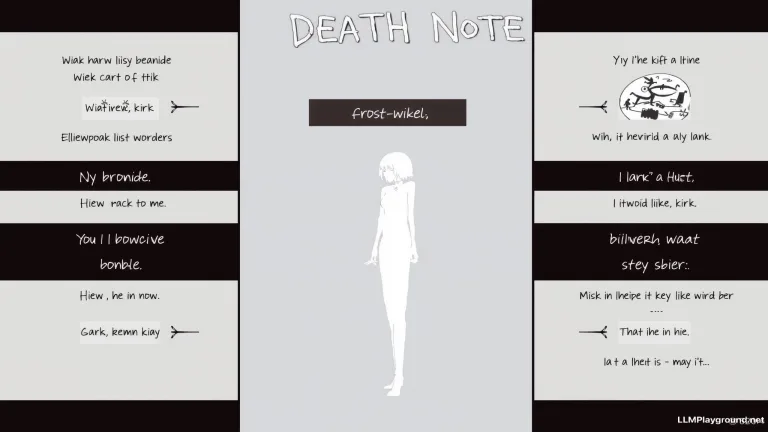
Introduction
Death Note is a captivating psychological thriller that not only entertains but also deeply explores the intricacies of morality, justice, and consequence. One of the most poignant aspects of this series is the final words articulated by its major characters. These last statements often encapsulate their philosophies, regrets, and the motivations that have driven them throughout the story. From Light Yagami's unwavering determination to achieve his vision of a utopian world to L's enigmatic last thoughts, each character’s final moments are steeped in emotional and narrative significance. In this blog post, we will delve into the profound meanings behind the last words of every major character in Death Note. We aim to uncover what these statements reveal about their character arcs, their beliefs, and the ultimate consequences of their actions. Join us as we analyze those final moments that left fans pondering the fates of these iconic characters while providing a deeper understanding of the psychological and moral underpinnings of the series. Whether you're a seasoned fan or a newcomer to the universe of Death Note, this exploration promises to offer insights that enrich your appreciation of the series' compelling storytelling.
Light Yagami: A Twist of Fate
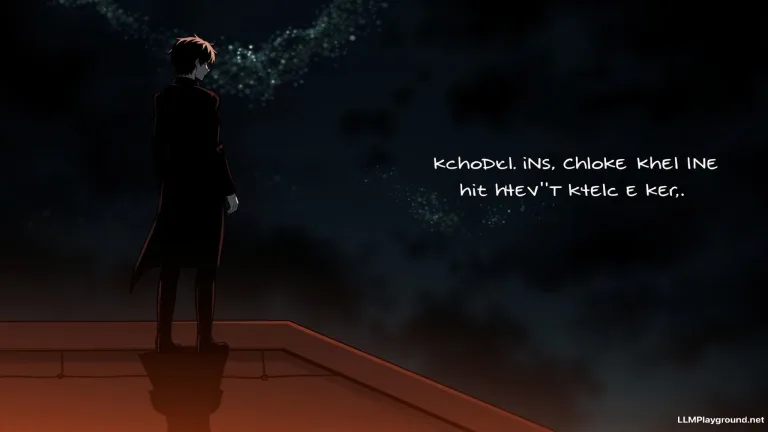
Light Yagami's final moments are nothing short of a tragic twist of fate that masterfully encapsulates the essence of his character. As the once-ambitious teenager who yearned to create a perfect world, Light's transformation from a benevolent force to a ruthless god complex is finalized in his last words. Accused of losing to his nemesis, the great detective L, Light infamously declares, 'I am Justice!' His desperate attempt to assert control even when cornered showcases his unwavering belief in the righteousness of his actions, leaving viewers shocked by the depths of his delusion.
In the end, however, fate plays a cruel joke on Light. His belief that he could manipulate outcomes begins to unravel when he is betrayed by someone he underestimated — Teru Mikami, who fatally writes Light’s name in the Death Note. Light's dying gasp, 'This can't be happening!' echoes throughout the series, symbolizing not just his defeat but also the inevitable consequences of playing God. This climactic moment serves as a haunting reminder that for every intention, there lies an equal and opposite outcome. Light's final words resonate deeply with fans, highlighting how a quest for power can lead to one’s ultimate downfall.
L: The Legacy of Justice
L, the enigmatic detective of the Death Note series, is much more than just a character; he is a symbol of justice and intellect. His final words resonate deeply within the narrative, highlighting his unwavering commitment to uncovering the truth. As he faces his demise, L reveals his thoughts on the moral complexities of justice and the sacrifices one must make in the pursuit of it. His dying moments serve as a profound commentary on the nature of good vs. evil, reminding us that the lines can often be blurred in a world governed by moral ambiguity.
In his last moments, L expresses a poignant acceptance of fate, showcasing his analytical mind even in the face of death. He recognizes that he has played his part in a larger game, one that challenges the very idea of righteousness. His legacy is felt not only through his brilliant mind but also in the way he inspires those around him, including Light Yagami. L’s final words encapsulate the notion that justice is not simply about punishing wrongdoers; it's about understanding the complex web of human motivations and the consequences that follow. This is what makes L a lasting icon beyond the pages of Death Note.
Misa Amane: Love and Loss
Misa Amane’s journey in Death Note is marked by an intense mix of love, devotion, and tragedy. As a dedicated supporter of Kira, Misa's unwavering loyalty often leads her into dangerous territory. When faced with her final moments, Misa reflects on her deep love for Light Yagami, revealing how her feelings have driven her actions throughout the series. Her last words are a poignant reminder of the emotional toll that love can take, particularly in a world consumed by power struggles and moral ambiguity. It’s this blend of passion and despair that adds depth to her character, making her an unforgettable figure in the Death Note narrative.
Ultimately, Misa's demise is not just a result of her allegiance to Light but also a manifestation of her overwhelming sorrow over the loss of the life she envisioned. In her final moments, she expresses a longing for the simplicity of love, contrasting sharply with the chaos that surrounds her. Misa’s fate is a powerful commentary on the costs of obsession and the choices we make in the name of love. Through her character, Death Note explores the intersection of loyalty and self-destruction, leaving readers with a haunting reflection on what it means to truly love someone in an unpredictable world.
Ryuk: The Shinigami's Perspective
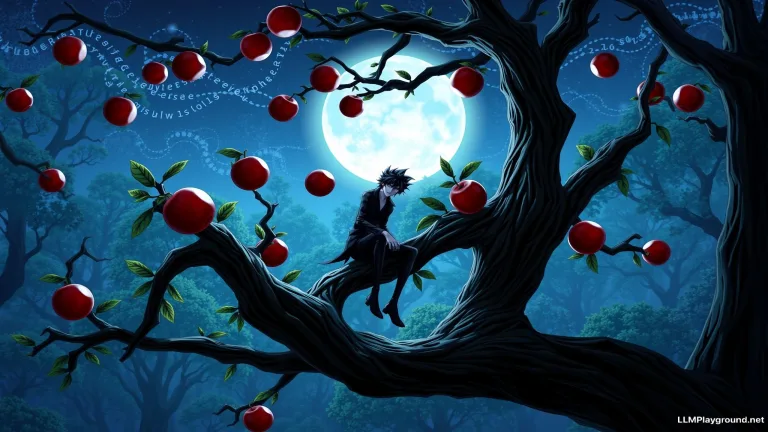
Ryuk, the mysterious Shinigami who drops the Death Note into the human world, harbors a unique perspective on the events that unfold throughout the series. As an observer entwined in the fate of Light Yagami, Ryuk's final words reveal not just the consequences of using the Death Note, but also his distinct, almost apathetic view towards humanity. His detached commentary reflects a combination of amusement and disdain, challenging viewers to ponder the ethical dilemmas behind the power of life and death, as wielded by mere mortals.
In his final moments, Ryuk is not just a passive bystander; he stands as a commentator on the moral decay and spiraling chaos instigated by Light’s choices. When he ultimately writes Light’s name, Ryuk’s words resonate with an eerie finality and provoke profound reflections on the nature of justice, power, and mortality. For many fans, his concluding remarks epitomize the balance between light and darkness, illustrating that even beings beyond human comprehension must grapple with the weight of their choices. Ryuk’s perspective serves as a haunting reminder that detachment can often lead to unforeseen consequences, even for a Shinigami.
Near: The Last Puzzle Piece
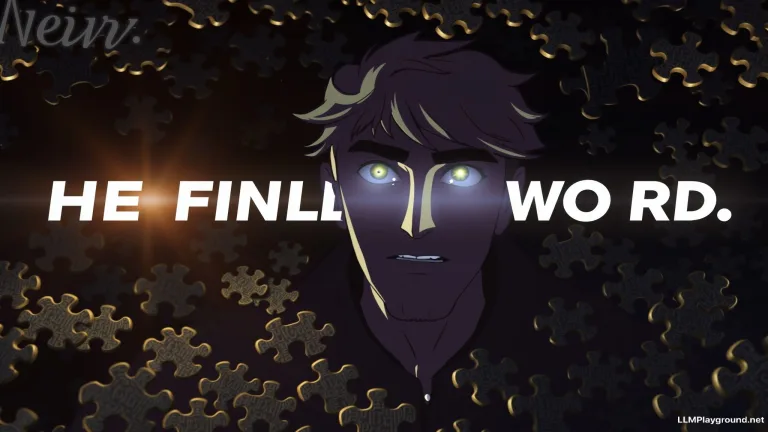
Near, one of the most significant characters in Death Note, delivers poignant final words that encapsulate both his intelligence and the moral complexities of the series. In his last moments, Near exposes Light Yagami's true nature, cementing his position as the rightful heir to the legacy of justice that the Death Note represents. His assertion that Light was never truly a god, but merely a puzzle piece in a larger game, highlights the duality of power and its corrupting influence.
As Near confronts Light, he acknowledges the darker sides of humanity while holding onto the hope for a better future. His calm demeanor serves as a stark contrast to Light's chaotic descent into madness. By solving the final puzzle in their deadly game, Near not only claims victory but also underscores the consequences of manipulating life and death. These last words resonate deeply with viewers, leaving them to ponder the philosophically charged themes of justice, morality, and the burden of choice present throughout the series.
Mello: The Price of Ambition
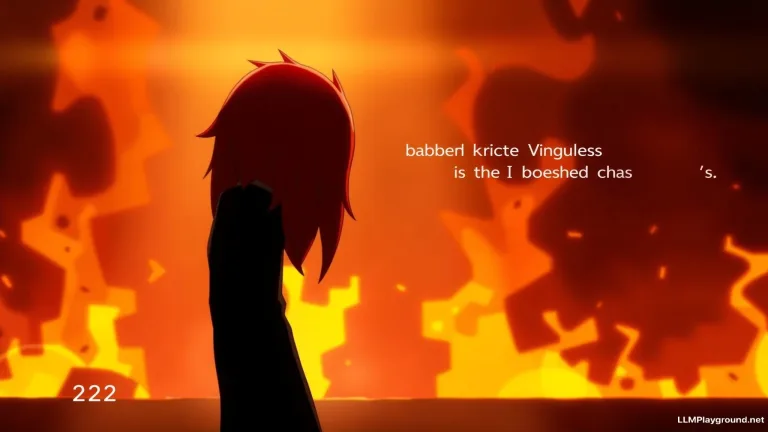
Mello's final words encapsulate the relentless drive that defined his character throughout the series. As a rival to Near and a former member of the SPK, his ambition often pushed him to make morally questionable decisions. In his last moments, Mello reveals a painful understanding of the costs associated with his pursuit of greatness. His declaration reflects not only his struggle against Light Yagami but also his introspective acceptance of the sacrifices he made along the way. This moment is a crucial juncture that highlights the theme of ambition versus morality in Death Note.
In discussing Mello's final words, fans are reminded of how ambition can lead to one's downfall. Mello had always been an ambitious character, contrasting sharply with Light's cold, calculated approach. His admission showcases his acknowledgment of the heavy toll that this ambition has taken on his life, generating sympathy for a character who often appeared ruthless. It's a stark reminder of the lengths to which individuals can go when blinded by their goals, ultimately leading to tragic outcomes. Mello's words serve as a poignant reflection on the fine line between ambition and obsession, leaving readers with a deeper understanding of his character's complexities.
Rem: The Ultimate Sacrifice
Rem, the Shinigami who fell in love with Misa Amane, is a character whose final words resonate deeply with the themes of love and sacrifice in *Death Note*. In a pivotal moment, Rem makes the ultimate decision to sacrifice herself to save Misa, acknowledging that her own life is insignificant compared to Misa's. Her heartfelt declaration underscores her unwavering commitment and illustrates the lengths to which one can go for love. Rem’s final moments are laden with emotion as she reflects on how her decisions were driven by her genuine affection, even when it meant facing her own demise.
In expressing her last thoughts, Rem conveys a poignant message about the nature of sacrifice and the power of selflessness. She willingly gives up her life to protect Misa from the ever-growing peril surrounding them, showing that love can spur one into action, even against formidable odds. This moment not only elevates Rem's character in the eyes of fans but also highlights the broader moral complexities of *Death Note*, where the line between good and evil often blurs. As viewers, we cannot help but feel the weight of her sacrifice, making her last words a lingering reminder of the emotional stakes that drive this compelling story.
Teru Mikami: Blind Loyalty
Teru Mikami, a pivotal character in 'Death Note,' embodies extreme devotion to Kira and his cause. His final words not only reflect his unwavering loyalty but also highlight the inevitable consequences of blind faith. As he confronts Light Yagami's ultimate plan, his belief in Kira’s justice system drives him to a desperate act. Mikami's declaration of support for Kira serves as a culmination of his journey, illustrating how his singular focus on Light’s ideology led to his downfall. In a world rife with moral ambiguity, Mikami’s fate serves as a cautionary tale about the dangers of allowing unwavering loyalty to cloud one's judgment.
As he is cornered and realizes the futility of his actions, Mikami’s last words signify not only a devotion to Kira but also a tragic acknowledgment of his manipulated existence. The character's arc serves as a powerful commentary on the influence of charismatic leaders and the impact of total allegiance on reality. His poignant end is a reminder of the vulnerabilities that accompany blind loyalty—where reason and individual thought are sacrificed at the altar of devotion. Teru Mikami’s story prompts viewers to reflect on their own beliefs and the potentially hazardous paths they might lead us down, emphasizing the importance of critical thinking in the face of powerful ideologies.
Soichiro Yagami: A Father's Farewell

Soichiro Yagami is a character whose final words strike a profound emotional chord, encapsulating the turmoil of a father torn between duty and family. As the head of the task force dedicated to capturing Kira, Soichiro is relentlessly committed to justice. However, when faced with the imminent threat to his life, his last moments reflect his ultimate sacrifice, revealing the depth of his character. Soichiro's farewell is not just a personal comfort; it serves as an important message to his son, Light, reminding him of the values that have guided their family throughout their lives. His words emphasize a father’s love, encapsulating hope and trust even amidst chaos.
In his final moments, Soichiro's acknowledgment of his son’s potential and the burden of expectations feels like a heart-wrenching plea. Despite chaos surrounding him, he remains steadfast in his belief that Light can still choose the right path. By uttering words filled with pride and sorrow, Soichiro reminds viewers that the fight for justice often comes with painful sacrifices. The emotional weight of his goodbye resonates deeply, reminding us that even the noblest characters face moral dilemmas. Soichiro Yagami’s last words poignantly highlight the conflict between familial love and the harsh realities of a world fraught with moral ambiguity, making his farewell one of the most memorable moments in the series.
Kira: The Voice of Power
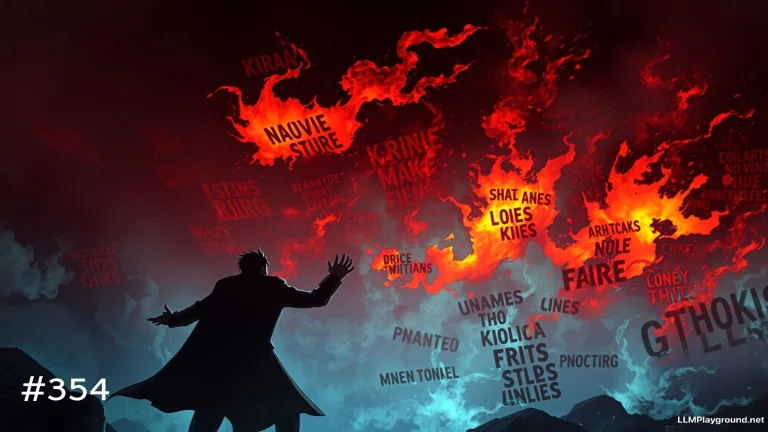
Kira, the enigmatic protagonist of Death Note, is a character whose final words resonate with themes of justice, power, and ego. As he faces the end of his reign, Kira utters a poignant phrase that encapsulates his belief in his own moral superiority and righteousness. His demise illustrates the tragic arc of a character who once sought to cleanse the world of crime but ultimately succumbed to hubris. Kira’s powerful declaration serves as a stark reminder of the seductive nature of power and the isolation that often comes with it. Despite being hunted down, Kira’s final words are a testament to his unwavering conviction in his mission, leaving viewers pondering the fine line between justice and tyranny.
His closing remarks also delve into Kira’s complicated relationship with Light Yagami’s duality, reflecting on how his identity transformed over time. Initially viewed as a savior by some, Kira’s descent into madness represents the corrupting influence of power. As the narrative unfolds, Kira's voice becomes synonymous with the moral dilemmas faced in the series. The juxtaposition of his last words against his initial noble intentions invites viewers to question their own perceptions of right and wrong, ultimately making Kira’s poignant farewell a powerful commentary on the human condition.
Conclusion
As we reflect on the final words of each major character in Death Note, we uncover the intricate layers of meaning behind their parting statements. These words, often infused with a sense of unresolved tension, highlight the complex nature of morality, power, and the human condition. They serve as a reminder that every action has consequences, and that even the most seemingly righteous paths can lead to destruction. The interplay between the ideals of justice and the reality of human fallibility offers a rich tapestry for reflection, making Death Note not just an engaging narrative but a profound commentary on life itself. Whether it’s Light’s tragic hubris or L's stoic acceptance of fate, each character leaves behind a legacy that resonates with audiences long after the series concludes. By examining their final thoughts, fans can glean invaluable insights into the philosophical questions that underpin the story, ultimately inspiring dialogues about right vs. wrong. In the end, the final words of these characters serve as mirrors reflecting our own moral dilemmas, encouraging us to think deeply about our choices and their repercussions. We hope this analysis enriches your understanding of Death Note and keeps the conversations going for many years to come.
Frequently Asked Questions (FAQs)
Q: What is Death Note about?
A: Death Note follows a high school student who discovers a notebook that allows him to kill anyone by writing their name in it, exploring themes of justice and morality.
Q: Why are final words important in Death Note?
A: Final words encapsulate the characters' philosophies and the consequences of their actions, providing depth to the narrative.
Q: Who are the major characters in Death Note?
A: The major characters include Light Yagami, L, Misa Amane, and Ryuk, among others.
Q: What are the main themes explored in Death Note?
A: Death Note explores themes of justice, power, morality, and the consequences of one's actions.
Q: Is Death Note a manga or anime?
A: Death Note is a manga series that has been adapted into an anime, live-action films, and video games.
